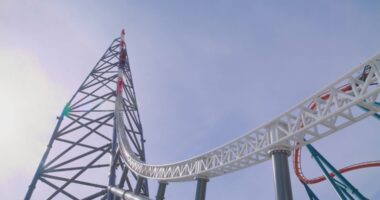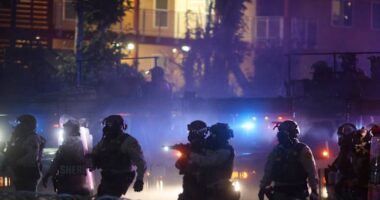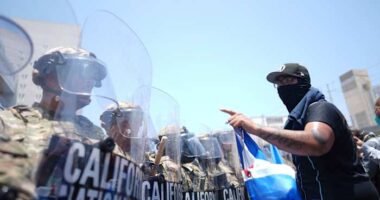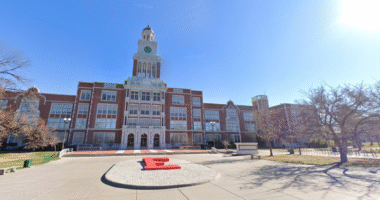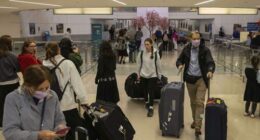
TOKYO – U.S. Secretary of Defense Lloyd Austin is currently in Japan engaging in meetings with Japanese officials. The purpose of the visit is to underline the importance of their alliance and to reinforce the U.S. dedication to regional security, particularly in the face of escalating threats from China and North Korea.
Austin’s trip occurs at a time of heightened apprehension regarding the safety of Osprey military aircraft. The fleet has been grounded in the U.S. subsequent to a recent incident at Cannon Air Force Base in New Mexico where weakening metal components led to a near-crash, reminiscent of a fatal accident in southwestern Japan last year.
While the U.S. grounding of Ospreys continues, it has not impacted the Ospreys in operation by Japan’s Ground Self-Defense Force. Japanese authorities are actively engaged in discussions with the U.S. military on this matter and have assured that they will take suitable action as needed, as communicated by Chief Cabinet Secretary Yoshimasa Hayashi to reporters on Tuesday.
Austin is scheduled to hold separate talks with his Japanese counterpart Gen Nakatani and Prime Minister Shigeru Ishiba later Tuesday, according to Japanese officials.
Nakatani told reporters that cooperation between Japan and the U.S., as well as with South Korea and other partners, is important as tensions escalate in the region.
The trilateral partnership between Japan, the U.S. and South Korea has significantly strengthened under President Joe Biden’s administration but faces new uncertainty amid ongoing political unrest in South Korea.
On Monday, Austin greeted crew members of the USS George Washington, a nuclear-powered flagship aircraft carrier docked at the U.S. Navy base in Yokosuka, near Tokyo.
Austin stressed the importance of U.S. cooperation with allies and partners in the region as he singled out China as the only country in the world with the intent and capability to change the rules-based international order in the Indo-Pacific, according to the U.S. Department of Defense.
“We want to see this region remain open to freedom of navigation and the ability to fly the skies in international airways,” Austin was quoted as saying on the defense department’s website.
“We will work with allies and partners to ensure we can do just that,” he added.
The U.S. carrier, which is under maintenance in Yokosuka, will carry the advanced F-35C stealth combat aircraft squadron currently based in the Marine Corps Air Station Iwakuni in the southwestern Japanese prefecture of Yamaguchi.
Copyright 2024 The Associated Press. All rights reserved. This material may not be published, broadcast, rewritten or redistributed without permission.


